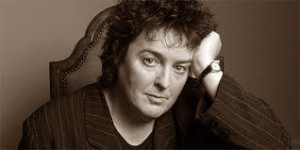This introduction to the poetry of World War 1, prepared for a 2014 meeting of the Oxford Poetry Group, looks at the changing attitudes towards the war of those who fought and wrote through the years 1914-18.
Introduction
The startling outburst of poetry in 1914-18, much of it of enduring quality, does not seem to be typical of wars before or since. No doubt the impetus was complex. But, to stay with the obvious, the poetry of WW1 was in large part the product of a group of young men from privileged backgrounds (Isaac Rosenberg being a major exception). Most had known very little beyond leafy, affluent lives, public schools, playing fields, country pursuits, and an education in which the poetry had a prominent place.
This well-defined social background translated easily into the military caste system of the time, meaning that most of these young men entered the war as officers and were expected to lead their platoons ‘over the top’ into a man-made hell the like of which they could not have anticipated. Many did so with extreme bravery (an extraordinary number of them were awarded the Military Cross, though one is left to wonder how many equivalent acts of bravery by men in the ranks went unrecognised.)
No doubt many began writing in verse because they felt that ordinary language could not express the intensity of the experiences they were going through. And no doubt many young men of this class and education would have been familiar with romantic poetry. So it was perhaps to be expected that two of the dominant early themes were the romantic, patriotic call to arms and the equally romantic, nostalgic, and often sentimental backward look at the idealised rural England that had been left behind.
In some of the verse from 1914, for example, there is an almost schoolboy glorying in the heroism and glamour of marching to war (as in Laurence Binyon’s “Now in thy splendour go before us, / Spirit of England, ardent-eyed” or Thomas Hardy’s “Press we to the field ungrieving” or John Freeman’s “Happy is England Now”). Some of these poems were later suppressed by the poets or their publishers: Robert Bridges’ “Wake up England,” for example, was kept out of later anthologies because sentiments such as “They that love life best die gladly for thee” did not sit easily with the mood after the appalling losses of 1916.
Above all, it was the young Rupert Brooke (‘almost anxious for death’ as some critics said) who inspired and exemplified this mood. His 1914 poem “Peace”, for example, sounds a note of exultation that echoes Wordsworth’s welcome for the French Revolution (“Bliss was it in that dawn to be alive / But to be young was very heaven!”).
But it is worth noting that there is also a very particular strain within the call to patriotic arms – the feeling shared by Brooke and his many admirers that the war was not just a patriotic duty but a glorious opportunity for an ‘awakening’ – a casting off of a slothful, indulgent, faintly dishonourable life and an emergence into a nobler Camelot world of ‘cleanness’, purity, and honour. His description of young men heading off to war as being like “swimmers into cleanness leaping” brilliantly captures this particular strain in the rallying cries of 1914. Brooke was an enormous influence on other young war poets of the time, and such attitudes inspired many of his own age and background to go to war in the consciousness – and the hope – of being part of a new and brilliant generation coming into a manhood more noble and glorious than any that might have awaited them in peacetime.
Brooke himself did not live to face the disillusionment or despair that was to come. He died in 1915 of acute blood poisoning on the way to Gallipoli.
Peace
Rupert Brooke
Now, God be thanked Who has matched us with His hour,
And caught our youth, and wakened us from sleeping,
With hand made sure, clear eye, and sharpened power,
To turn, as swimmers into cleanness leaping,
Glad from a world grown old and cold and weary,
Leave the sick hearts that honour could not move,
And half-men, and their dirty songs and dreary,
And all the little emptiness of love!
Oh! we, who have known shame, we have found release there,
Where there’s no ill, no grief, but sleep has mending,
Naught broken save this body, lost but breath;
Nothing to shake the laughing heart’s long peace there
But only agony, and that has ending;
And the worst friend and enemy is but Death.
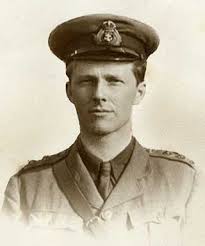
Heartfelt things
If Rupert Brooke captures the spirit of going forward in 1914, it is John Masefield who perhaps best captures the romance of looking back. And nowhere better than in the traditional verses of “August 1914” which dwell so lovingly on the world that was being left behind. In style, the poem could almost have been written in 1714 rather than 1914, and in both mood and diction it carries long echoes of Gray’s famous “Elegy in a Country Churchyard” (written in 1750). Eventually Masefield turns to “the misery of the soaking trench” but in a style that was itself dying, though note the prescient power of the 11th stanza.
August 1914 (extract)
John Masefield
How still this quiet cornfield is to-night!
By an intenser glow the evening falls,
Bringing, not darkness, but a deeper light;
Among the stooks a partridge covey calls.
The windows glitter on the distant hill;
Beyond the hedge the sheep-bells in the fold
Stumble on sudden music and are still;
The forlorn pinewoods droop above the wold.
An endless quiet valley reaches out
Past the blue hills into the evening sky;
Over the stubble, cawing, goes a rout
Of rooks from harvest, flagging as they fly.
So beautiful it is, I never saw
So great a beauty on these English fields,
Touched by the twilight’s coming into awe,
Ripe to the soul and rich with summer’s yields.
These homes, this valley spread below me here,
The rooks, the tilted stacks, the beasts in pen,
Have been the heartfelt things, past-speaking dear
To unknown generations of dead men,
Who, century after century, held these farms,
And, looking out to watch the changing sky,
Heard, as we hear, the rumours and alarms
Of war at hand and danger pressing nigh.
And knew, as we know, that the message meant
The breaking off of ties, the loss of friends,
Death, like a miser getting in his rent,
And no new stones laid where the trackway ends.
The harvest not yet won, the empty bin,
The friendly horses taken from the stalls,
The fallow on the hill not yet brought in,
The cracks unplastered in the leaking walls.
Yet heard the news, and went discouraged home,
And brooded by the fire with heavy mind,
With such dumb loving of the Berkshire loam
As breaks the dumb hearts of the English kind,
Then sadly rose and left the well-loved Downs,
And so by ship to sea, and knew no more
The fields of home, the byres, the market towns,
Nor the dear outline of the English shore,
But knew the misery of the soaking trench,
The freezing in the rigging, the despair
In the revolting second of the wrench
When the blind soul is flung upon the air,
And died (uncouthly, most) in foreign lands
For some idea but dimly understood
Of an English city never built by hands
Which love of England prompted and made good.

1915: disturbed ground
By 1915 the heart was no longer laughing, though the torch of patriotism still burned. And it was in 1915 that the Canadian John McRae wrote what is probably the most famous of all war poems – and one of the best.
McRae, who died not in action but in the great flu pandemic of 1918, was a medical doctor who chose to volunteer for a front-line posting. As a gunner and medical officer in the second Battle of Ypres, he endured the first chlorine gas attack and helped hold the Canadian line for more than two weeks, an experience he described in a letter home:
“For seventeen days and seventeen nights none of us have had our clothes off, nor our boots even, except occasionally. In all that time while I was awake, gunfire and rifle fire never ceased for sixty seconds ….. And behind it all was the constant background of the sights of the dead, the wounded, the maimed, and a terrible anxiety lest the line should give way.”
At Ypres, a close friend was killed and McRae conducted the funeral service. Afterwards, sitting in the back of an ambulance, he pulled out a scrap of paper and wrote “In Flanders Fields”, choosing the form of a two-rhyme rondeau and taking as his starting point the poppies that had sprung up all around on the graves of the dead, as poppies always do on disturbed ground. By all accounts he was dissatisfied with the poem and threw it away, only for it to be recovered by a fellow soldier. Quoted and memorised by thousands from that day to this, McRae’s discarded effort gave to the world its symbol of remembrance.
In Flanders Fields
John McCrae
In Flanders fields the poppies blow
Between the crosses, row on row,
That mark our place; and in the sky
The larks, still bravely singing, fly
Scarce heard amid the guns below.
We are the Dead. Short days ago
We lived, felt dawn, saw sunset glow,
Loved and were loved, and now we lie,
In Flanders fields.
Take up our quarrel with the foe:
To you from failing hands we throw
The torch; be yours to hold it high.
If ye break faith with us who die
We shall not sleep, though poppies grow
In Flanders fields.
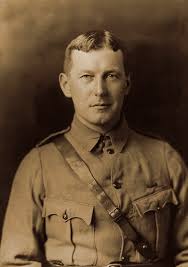
Good-bye to all this
Before looking at the transition year of 1916, it is worth lingering a moment over a short poem by W. N. Hodgson.
The son of a Bishop, educated at Durham School and Christchurch, Oxford, Hodgson volunteered for the Devonshires after being inspired by the verse of Rupert Brooke. Known as “Smiler” to his friends, he fought at the Battle of Loos where he won the Military Cross. In April 1916, his battallion was moved to the town of Mametz. And it was there, waiting in the trenches for the Battle of the Somme to begin, that he wrote “Before Action” – a poem that I cannot read without tears any more now than I could when I first read it aged 17. Its conventional form and metre and traditional poetic diction serve to restrain and so make more poignant its emotion. Imagine writing these lines as a 22 year-old while waiting for battle to begin
Three days later it did begin, and by the end of the first day Hodgson lay dead, along with 30,000 other young men.
Before Action
W. N. Hodgson
By all the glories of the day
And the cool evening’s benison
By that last sunset touch that lay
Upon the hills when day was done,
By beauty lavishly outpoured
And blessings carelessly received,
By all the days that I have lived
Make me a soldier, Lord.
By all of all man’s hopes and fears
And all the wonders poets sing,
The laughter of unclouded years,
And every sad and lovely thing;
By the romantic ages stored
With high endeavour that was his,
By all his mad catastrophes
Make me a man, O Lord.
I, that on my familiar hill
Saw with uncomprehending eyes
A hundred of thy sunsets spill
Their fresh and sanguine sacrifice,
Ere the sun swings his noonday sword
Must say good-bye to all of this; –
By all delights that I shall miss,
Help me to die, O Lord.
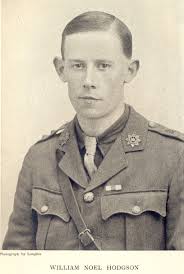
Strange Joy
Everything changed after 1916. But even as the horror and the pity and the anger burned in the poetry of those years there remained a sporadic awareness that the human mind may still be struck by, and even have a heightened awareness of, the unexpected visitations of beauty, even a strange kind of joy, in times of fear and darkness.
This minor strain but persistent strain in the verse of the period is represented below by Isaac Rosenberg.
The son of Lithuanian Jewish immigrants, Rosenberg grew up in London’s East End and was perhaps the only major war poet to come from a very poor background. He had already begun writing poetry by the time he left school at 14 and was planning to become an artist when war intervened. Only about 5 ft. tall and suffering from chronic bronchitis, it seemed unlikely that he would be passed fit for service. But in 1915 he managed to enlist in the ‘Bantam Battalion,’ a special unit for men under 5’ 3”. His early attempts at verse were encouraged by Edward Marsh and Laurence Binyon and he continued to write during his three years in France before being killed coming off night patrol on the Somme in April 1918. His poetry was collected and seen through to publication by Siegfried Sassoon.
Returning, We Hear the Larks
Isaac Rosenberg
Sombre the night is.
And though we have our lives, we know
What sinister threat lies there.
Dragging these anguished limbs, we only know
This poison-blasted track opens on our camp –
On a little safe sleep.
But hark! joy – joy – strange joy.
Lo! heights of night ringing with unseen larks.
Music showering our upturned list’ning faces.
Death could drop from the dark
As easily as song –
But song only dropped,
Like a blind man’s dreams on the sand
By dangerous tides,
Like a girl’s dark hair for she dreams no ruin lies there,
Or her kisses where a serpent hides.
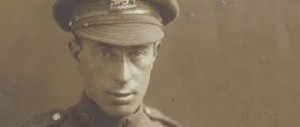
The poetry of the pity of war
The pointlessness of the unspeakable slaughter of the Somme brought to an end any lingering notions of the glory and romance of war – at least among those who experienced it first-hand. After 1916, the dominant themes became the brute reality of the trenches, the mental and physical agonies, and an outpouring of bitterness against armchair warriors and blow-hard patriots. And above even this storm of anger there arose a note of heart-piercing lament at the waste and the pity. My subject, said Owen, is “the pity war, the pity war distilled”.
It is difficult now to appreciate how shocking the new themes and the new language were to those attached to conventional ideas of what was a ‘fit subject’ for poetry. Instead of leisurely musings on beauty and truth, instead of nature sonnets and pinings for forlorn loves, instead of heroic classical re-tellings or Virgilian elegies, readers were now offered the image of a gun carriage running over a dead man’s face, as in Rosenberg’s “Dead Man’s Dump”.
The wheels lurched over the sprawled dead
But pained them not, though their bones crunched.
No longer were young soldiers like ‘swimmers into cleanness leaping’ but like ‘old beggars under sacks, knock-kneed, coughing like hags’. And instead of the spirit of England awakening ‘ardent-eyed’ and ‘dying gladly for thee’ came an outpouring of disgust and disillusionment, anger and boredom, bitterness and despair, and some of the most graphic descriptions of war ever written.
Many could not accept this as poetry, including W. B. Yeats who excluded Wilfred Owen and others from his anthology.
These were the years of the great poems of Sassoon and Owen (some would add Edmund Blunden and Isaac Rosenberg).
Siegfried Sassoon – Marlborough, Cambridge, hunting, cricket, the pursuits of a leisured country gentleman – exemplified the kind of young ‘officer and gentleman’ who suddenly found himself in the unimaginable hell of the trenches. But he became the first to use poetry to describe the reality of war and to criticise the attitudes of politicians and opinion-leaders back home. By 1917, he was the acknowledged leader of the new wave of war poets.
As is well-known, Sassoon’s protest was not confined to poetry. After winning the Military Cross for bravery on the Somme, ‘Mad Jack’ did the unthinkable by refusing to serve at the front, inviting court martial, and openly challenging the continuance of the war. He then used his contacts to have the following statement – with its final devastating sentence – read out in Parliament:
I am making this statement as an act of wilful defiance of military authority, because I believe that the War is being deliberately prolonged by those who have the power to end it. I am a soldier, convinced that I am acting on behalf of soldiers. I believe that this War, upon which I entered as a war of defence and liberation, has now become a war of aggression and conquest. I believe that the purposes for which I and my fellows soldiers entered upon this War should have been so clearly stated as to have made it impossible to change them, and that, had this been done, the objects which actuated us would now be attained by negotiation.
I have seen and endured the sufferings of the troops, and I can no longer be a party to prolonging those sufferings for ends which I believe to be evil and unjust. I am not protesting against the conduct of the War, but against the political errors and insincerities for which the fighting men are being sacrificed. On behalf of those who are suffering now, I make this protest against the deception which has been practised upon them; also I believe that it may help to destroy the callous complacence with which the majority of those at home regard the continuance of agonies which they do not share, and which they have not sufficient imagination to realise.
To minimise the embarrassment and the publicity, the authorities refused to court martial Sassoon (a well known and much admired officer). Instead they had him classified as temporarily suffering from ‘the effects of a passing nervous shock’ and consigned him to Craiglockhart War Hospital in Scotland. Here it was that he met Wilfred Owen (the story is told in Pat Barker’s novel Regeneration).
It is difficult to choose any one example of Sassoon’s work from this period, but “Prelude: The Troops” perhaps deserves to be better known:
Prelude: The troops
Siegfried Sassoon
Dim, gradual thinning of the shapeless gloom
Shudders to drizzling daybreak that reveals
Disconsolate men who stamp their sodden boots
And turn dulled, sunken faces to the sky
Haggard and hopeless. They, who have beaten down
The stale despair of night, must now renew
Their desolation in the truce of dawn,
Murdering the livid hours that grope for peace.
Yet these, who cling to life with stubborn hands,
Can grin through storms of death and find a gap
In the clawed, cruel tangles of his defence.
They march from safety, and the bird-sung joy
Of grass-green thickets, to the land where all
Is ruin, and nothing blossoms but the sky
That hastens over them where they endure
Sad, smoking, flat horizons, reeking woods,
And foundered trench-lines volleying doom for doom.
O my brave brown companions, when your souls
Flock silently away, and the eyeless dead
Shame the wild beast of battle on the ridge,
Death will stand grieving in that field of war
Since your unvanquished hardihood is spent.
And through some mooned Valhalla there will pass
Battalions and battalions, scarred from hell;
The unreturning army that was youth;
The legions who have suffered and are dust.
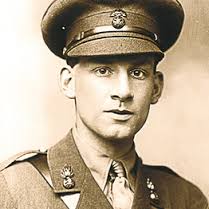
What are we doing here?
Wilfred Owen was also invalided to Craiglockhart Hospital after serving three years in France. Here he was ‘discovered’ by Sassoon (who arrived a month after Owen in the summer of 1917). The older man (Sassoon was 30) introduced Owen to other poets including Graves and Nichols. This circle (the four of them went on leave together to North Wales) bolstered Owen’s frail confidence in his own talent.
After Sassoon returned to the front and was seriously wounded, Owen knew he had to go back; partly from loyalty to his men, partly from a determination to take up Sassoon’s mantle of protest by ‘those who knew.’ As he explained in a letter to his mother “I came out in order to help these boys; directly, by leading them as well as an officer can; indirectly, by watching their sufferings that I may speak of them as well as a pleader can.” At first he had an easy few weeks behind the lines, reading and writing poetry. When he finally went up to the front, and with the war nearing its end, he wrote home again: “My senses are charred; I don’t take the cigarette out of my mouth when I write ‘Deceased’ over their letters.”
In the whole war, Owen spent only four or five weeks at the front; yet the intensity of the experience was such that it was he who captured, more than any other poet before or since, the appalling reality experienced by hundreds of thousands of young men who had lived and died in the trenches and who would otherwise, he felt, have had no voice.
On October 1st, in what turned out to be the last week of the war, Owen was killed trying to lead his unit cross the Sambre Canal. Earlier that day he had captured a machine gun and turned it on the enemy, an action for which he was posthumously awarded the Military Cross. The telegram announcing his death arrived at his home in Shrewsbury on the day the Armistice was signed, his mother reading it as the bells of the Abbey church were ringing to celebrate the end of the war.
Widely considered to be the finest of the war poets, Owen’s use of half rhyme, in particular, seems the almost unconscious echo of war poetry itself. “Strange Meeting”, described by Osbert Sitwell as “as great a poem as exists in our tongue” is perhaps too well-known to need including here. Instead, I have chosen ‘Exposure’ to represent Owen’s view of ‘the pity war distilled’
Exposure
Wilfred Owen
Our brains ache, in the merciless iced east winds that knive
Wearied we keep awake because the night is silent…
Low, drooping flares confuse our memory of the salient
Worried by silence, sentries whisper, curious, nervous,
But nothing happens.
Watching, we hear the mad gusts tugging on the wire,
Like twitching agonies of men among its brambles.
Northward, incessantly, the flickering gunnery rumbles,
Far off, like a dull rumour of some other war.
What are we doing here?
The poignant misery of dawn begins to grow …
We only know war lasts, rain soaks, and clouds sag stormy.
Dawn massing in the east her melancholy army
Attacks once more in ranks on shivering ranks of gray,
But nothing happens.
Sudden successive flights of bullets streak the silence
Less deathly than the air that shudders black with snow,
With sidelong flowing flakes that flock, pause and renew;
We watch them wandering up and down the wind’s nonchalance,
But nothing happens.
Pale flakes with fingering stealth come feeling for our faces –
We cringe in holes, back on forgotten dreams, and stare, snow
Deep into grassier ditches. So we drowse, sun-dozed,
Littered with blossoms trickling where the blackbird fusses.
Is it that we are dying?
Slowly our ghosts drag home: glimpsing the sunk fires, glozed
With crusted dark-red jewels; crickets jingle there;
For hours the innocent mice rejoice: the house is theirs;
Shutters and doors, all closed: on us the doors are closed, –
We turn back to our dying.
Since we believe not otherwise can kind fires burn;
Nor ever suns smile true on child, or field, or fruit.
For God’s invincible spring our love is made afraid;
Therefore, not loath, we lie out here; therefore were born,
For love of God seems dying.
Tonight, this frost will fasten on this mud and us,
Shrivelling many hands, puckering foreheads crisp.
The burying-party, picks and shovels in their shaking grasp,
Pause over half-known faces. All their eyes are ice,
But nothing happens.

The Old Lie
Owen’s rebellion was less political than Sassoon’s parliamentary challenge, but if anything his poetic protest was even more shocking. On leave, Owen habitually carried photographs of the wounded – ready to take out and thrust in front of anyone mouthing conventional platitudes about the war. And speaking of platitudes, the one about a picture being worth a thousand words does not stack up too well against some of Owen’s late poems; and perhaps the most shocking of these, in both description and sentiment, was his most direct challenge to conventional patriotic wisdom – the ‘old lie’ that to die for one’s country is fine and noble.
Dulce et decorum est
Wilfred Owen
Bent double, like old beggars under sacks,
Knock-kneed, coughing like hags, we cursed through
Till on the haunting flares we turned our backs
And towards our distant rest began to trudge.
Men marched asleep. Many had lost their boots
But limped on, blood-shod. All went lame; all blind;
Drunk with fatigue; deaf even to the hoots
Of gas-shells dropping softly behind.
Gas! Gas! Quick, boys! – An ecstasy of fumbling,
Fitting the clumsy helmets just in time;
But someone still was yelling out and stumbling
And flound’ring like a man in fire or lime…
Dim, through the misty panes and thick green light,
As under a green sea, I saw him drowning.
In all my dreams, before my helpless sight,
He plunges at me, guttering, choking, drowning.
If in some smothering dreams you too could pace
Behind the wagon that we flung him in,
And watch the white eyes writhing in his face,
His hanging face, like a devil’s sick of sin;
If you could hear, at every jolt, the blood
Come gargling from the froth-corrupted lungs,
Obscene as cancer, bitter as the cud
Of vile, incurable sores on innocent tongues, –
My friend, you would not tell with such high zest
To children ardent for some desperate glory,
The old lie: Dulce et decorum est
Wading sloughs of flesh
If you can bear any more, there is another common strand in the new poetry of war that deserves to be mentioned: the growing awareness that wounds could be mental as well as physical. The Craiglockhart War Hospital was reserved for officers suffering from ‘neurasthenia’ (so called because it sounded more scientific and therefore more acceptable as an illness than ‘shell shock’). But it was not only officers who suffered mental wounds and Owen, especially, was determined to recognise and represent this.
Several of his poems describe what trench warfare could do to the minds of brave men. Perhaps the one that most directly addresses this is Mental Cases – to my mind one of the greatest poems of the war.
Mental Cases
Wilfred Owen
Who are these? Why sit they here in twilight?
Wherefore rock they, purgatorial shadows,
Drooping tongues from jaws that slob their relish,
Baring teeth that leer like skulls’ teeth wicked?
Stroke on stroke of pain,- but what slow panic,
Gouged these chasms round their fretted sockets?
Ever from their hair and through their hands’ palms
Misery swelters. Surely we have perished
Sleeping, and walk hell; but who these hellish?
-These are men whose minds the Dead have ravished.
Memory fingers in their hair of murders,
Multitudinous murders they once witnessed.
Wading sloughs of flesh these helpless wander,
Treading blood from lungs that had loved laughter.
Always they must see these things and hear them,
Batter of guns and shatter of flying muscles,
Carnage incomparable, and human squander
Rucked too thick for these men’s extrication.
Therefore still their eyeballs shrink tormented
Back into their brains, because on their sense
Sunlight seems a blood-smear; night comes blood-black;
Dawn breaks open like a wound that bleeds afresh.
– Thus their heads wear this hilarious, hideous,
Awful falseness of set-smiling corpses.
– Thus their hands are plucking at each other;
Picking at the rope-knouts of their scourging;
Snatching after us who smote them, brother,
Pawing us who dealt them war and madness.
Wound with war’s hard wire
Within the great theme of ‘the pity of war,’ there is of course another great and common theme: respect for the bond between men who had shared the experience of the trenches.
This was an experience so intense and extraordinary that many came to feel that it could not be understood or even imagined by those who had not been there. And this in turn gave rise to an intense sense of identity and solidarity, even love, between the men who had been through it together.
Almost a hundred years after World War 1, a study into the motivation of US troops fighting in Iraq and Afghanistan revealed that the sense of dedication and commitment felt by many soldiers was not to the war, or to the cause, or to defeating the enemy, or even to their country and its values; it was dedication and commitment to the bond between those who ‘were there’, those with whom they were daily sharing the experiences of that war. Reading the poems of Nichols, Owen, Sassoon and others, it seems that this may have been just as true in the Great War. In his book on Wilfred Owen, Dominic Hibberd writes that “By 1918, the soldiers were almost more concerned with fighting for each other than for the people at home” (and this, as we have seen, was a large part of Owen’s motive in deciding to return to the front).
As the war dragged on, it was this bond – ‘wound with war’s hard wire’ – that replaced the fragile solidarity of jingoism and the easy patriotism of the early years. Several poems address this subject directly. I have chosen four here:
Comrades: An Episode
Robert Graves
And have we done with War at last?
Well, we’ve been lucky devils both,
And there’s no need of pledge or oath
To bind our lovely friendship fast,
By firmer stuff
Close bound enough.
By wire and wood and stake we’re bound,
By Fricourt and by Festubert,
By whipping rain, by the sun’s glare,
By all the misery and loud sound,
By a Spring day,
By Picard clay.
Show me the two so closely bound
As we, by the red bond of blood,
By friendship, blossoming from mud,
By Death: we faced him, and we found
Beauty in Death,
In dead men breath.
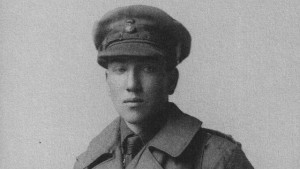
The Watchers
Robert Nichols
Before, before he was aware
The ‘Verey’ light had risen… on the air
in hung glistering..
And he could not stay his hand
From moving to the barbed wire’s broken strand.
A rifle cracked.
He fell.
Night waned. He was alone. A heavy shell
Whispered itself passing high, high overhead.
His wound was wet to his hand: for still it bled
On the glimmering ground.
Then with a slow, vain smile his wound he bound,
Knowing, of course, he’d not see home again –
Home, whose thought he put away.
His men
Whispered, ‘Where’s Mister Gates?’ ‘Out on the wire.’
‘I’ll get him,’ said one….
Dawn blinked and the fire
Of the Germans heaved up and down the line.
‘Stand to!’
Too late! ‘I’ll get him.’ ‘Oh the swine,
When we might get him in yet safe and whole!’
‘Corp’ral didn’t see um fall out on patrol
Or he’d a got um.’ ‘Ssssh’…
‘No talking there.’
A whisper: ”A went down at the last flare.’
Meanwhile the Maxims toc-toc-tocked: their swish
Of bullets told death lurked against the wish.
No hope for him!
His corporal, as one shamed,
Vainly and helplessly his ill-luck blamed.
Then Gates slowly saw the morn
Break in a rose peace through the lone thorn
By which he lay, and felt the dawn-wind pass
Whispering through the pallid, stalky grass
Of No-Man’s Land…
And the tears came
Scaldingly sweet, more lovely than a flame.
He closed his eyes: he thought of home
And grit his teeth. He knew no help could come….
The silent sun over the earth held sway,
Occasional rifles cracked, and far away
A heedless speck, a ‘plane, slid on alone
Like a fly traversing a cliff of stone.
‘I must get back,’ said Gates aloud, and heaved
At his body. But it lay bereaved
Of any power. He could not wait till night….
And he lay still. Blood swam across his sight.
Then with a groan:
‘No luck ever. Well! I must die alone.’
Occasional rifles cracked. A cloud that shone,
Gold-rimmed, blackened the sun and then was gone…
The sun still smiled. The grass sang in its play.
Some one whistled, ‘Over the hills and far away.’
Gates watched silently the swift, swift sun
Burning his life before it was begun….
Suddenly he heard Corporal Timmins’ voice: ‘Now, then,
‘Urry up with that tea.’
‘Hin Ginger!’ ‘Bill.’ His men!
Timmins and Jones and Wilkinson (‘the bard’)
And Hughes and Simpson. It was hard
Not to see them: Wilkinson, stubby, grim,
With his ‘No, sir,’ ‘Yes, sir,’ and the slim
Simpson, ‘Indeed, sir?’ [while it seemed he winked
Because his smiling left eye always blinked]
And Corporal Timmins, straight and blonde and wise,
With his quiet-scanning, level, hazel eyes,
And all the others… tunics that didn’t fit….
A dozen different sorts of eyes. Oh, it
Was hard to lie there! Yet he must. But no:
‘I’ve got to die. I’ll get to them. I’ll go.’
Inch by inch he fought, breathless and mute,
Dragging his carcase like a famished brute….
His head was hammering and his eyes were dim,
A bloody sweat seemed to ooze out of him
And freeze along his spine… then he’d lie still
Before another effort of his will
Took him one nearer yard.
The parapet was reached.
He could not rise to it. A look-out screeched,
‘Mr. Gates!’
Three figures in one breath
Leaped up. Two figures fell in toppling death;
And Gates was lifted in. ‘Who’s hit?’ said he.
‘Timmins and Jones.’ ‘Why did they that for me?
I’m gone already!’ Gently they laid him prone
And silently watched.
He twitched. They heard him moan,
‘Why for me?’ His eyes roamed round and none replied.
‘I see it was alone I should have died.’
They shook their heads. Then, ‘Is the doctor here?’
‘He’s comin’, sir, he’s hurryin’, no fear.’
‘No good….
‘Lift me.’ They lifted him.
He smiled and held his arms out to the dim,
And in a moment passed beyond their ken,
Hearing him whisper, ‘O my men, my men!’
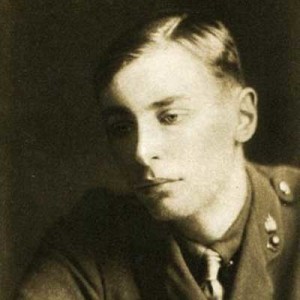
Two Fusiliers
Edmund Blunden
I heard the challenge “Who goes there?”
Close kept but mine through midnight air
I answered and was recognized
And passed, and kindly thus advised;
“There’s someone crawling through the grass
By the red ruin, or there was,
And them machine guns been a firin’
All the time the chaps was wirin’,
So Sir if you’re goin’ out
You’ll keep you ‘ead well down no doubt.”
When will the stern fine “Who goes there?”
Meet me again in midnight air?
And the gruff sentry’s kindness, when
Will kindness have such power again?
It seems as, now I wake and brood,
And know my hour’s decrepitude,
That on some dewy parapet
the sentry’s spirit gazes yet,
Who will not speak with altered tone
When I am last am seem and known.
Disillusionment and despair –
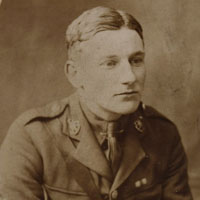
Apologia pro poemate meo
Wilfred Owen
I, too, saw God through mud, –
The mud that cracked on cheeks when wretches smiled.
War brought more glory to their eyes than blood,
And gave their laughs more glee than shakes a child.
Merry it was to laugh there –
Where death becomes absurd and life absurder.
For power was on us as we slashed bones bare
Not to feel sickness or remorse of murder.
I, too, have dropped off Fear –
Behind the barrage, dead as my platoon,
And sailed my spirit surging light and clear
Past the entanglement where hopes lay strewn;
And witnessed exultation –
Faces that used to curse me, scowl for scowl,
Shine and lift up with passion of oblation,
Seraphic for an hour; though they were foul.
I have made fellowships –
Untold of happy lovers in old song.
For love is not the binding of fair lips
With the soft silk of eyes that look and long,
By Joy, whose ribbon slips, –
But wound with war’s hard wire whose stakes are strong;
Bound with the bandage of the arm that drips;
Knit in the webbing of the rifle-thong.
I have perceived much beauty
In the hoarse oaths that kept our courage straight;
Heard music in the silentness of duty;
Found peace where shell-storms spouted reddest spate.
Nevertheless, except you share
With them in hell the sorrowful dark of hell,
Whose world is but the trembling of a flare
And heaven but as the highway for a shell.
You shall not hear their mirth:
You shall not come to think them well content
By any jest of mine. These men are worth
Your tears. You are not worth their merriment.
Back home
A corollary of the intense bond between those sharing the experience of the trenches was an increasing sense of separation, in experience and understanding, from those ‘back home’ or even those sitting well behind the front lines who carelessly ‘send glum heroes up the line to death’.
In some cases, this feeling merged into or was expressed by scorn and resentment of naïve jingoists, armchair warriors and incompetent generals. Rowan Atkinson’s quip in the television series “Blackadder” – “all this so that General Haig can move his drinks cabinet six inches nearer to Berlin” – expresses the same sentiment that surfaced in many of the poems of 1916-18. The examples below bring in Edmund Blunden and A. P. Herbert, though I start again with Sassoon (incidentally the first two of these poems were inspired by attending a concert or music hall while home on leave).
Blighters
Siegfried Sassoon
The House is crammed: tier beyond tier they grin
And cackle at the Show, while prancing ranks
Of harlots shrill the chorus, drunk with din;
‘We’re sure the Kaiser loves our dear old Tanks!’
I’d like to see a Tank come down the stalls,
Lurching to rag-time tunes, or ‘Home, sweet Home’,
And there’d be no more jokes in Music-halls
To mock the riddled corpses round Bapaume.
Concert Party: Busseboom
Edmund Blunden
The stage was set, the house was packed,
The famous troop began;
Our laughter thundered, act by act;
Time light as sunbeams ran.
Dance sprang and spun and neared and fled,
Jest chirped at gayest pitch,
Rhythm dazzled, action sped
Most comically rich.
With generals and lame privates both
Such charms worked wonders, till
The show was over – lagging loth
We faced the sunset chill;
And standing on the sandy way,
With the cracked church peering past,
We heard another matinée,
We heard the maniac blast
Of barrage south by Saint Eloi,
And the red lights flaming there
Called madness: Come, my bonny boy,
And dance to the latest air.
To this new concert, white we stood;
Cold certainty held our breath;
While men in tunnels below Larch Wood
Were kicking men to death.
After the battle
A. P. Herbert
So they are satisfied with our Brigade,
And it remains to parcel out the bays!
And we shall have the usual Thanks Parade,
The beaming General, and the soapy praise.
You will come up in your capricious car
To find your heroes sulking in the rain,
To tell us how magnificent we are,
And how you hope we’ll do the same again.
And we, who knew your old abusive tongue,
Who heard you hector us a week before,
We who have bled to boost you up a rung –
A K.C.B. perhaps, perhaps a Corps –
We who must mourn those spaces in the mess
And somehow fill those hollows in the heart
We do not want your Sermon on Success
Your greasy benisons on Being Smart.
We only want to take our wounds away.
To some warm village where the tumult ends,
And drowsing in the sunshine many a day,
Forget our aches, forget that we had friends.
Weary we are of blood and noise and pain;
This was a week we shall not soon forget;
And if, indeed, we have to fight again,
We little wish to think about it yet.
We have done well; we like to hear it said.
Say it, and then, for God’s sake, say no more.
Fight, if you must, fresh battles far ahead,
But keep them dark behind your chateau door.
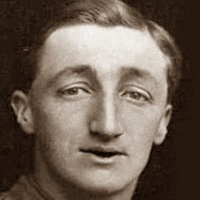
Lest we forget
Finally, we come to the aftermath of war, the looking back and the urging not to forget. No apology for again representing this theme by two astonishing and intense poems by Sassoon – who survived the war but did not forget.
Aftermath
Siegfried Sassoon
Have you forgotten yet?…
For the world’s events have rumbled on since those gagged days,
Like traffic checked while at the crossing of city-ways:
And the haunted gap in your mind has filled with thoughts that flow
Like clouds in the lit heaven of life; and you’re a man reprieved to go,
Taking your peaceful share of Time, with joy to spare.
But the past is just the same–and War’s a bloody game…
Have you forgotten yet?…
Look down, and swear by the slain of the War that you’ll never forget.
Do you remember the dark months you held the sector at Mametz–
The nights you watched and wired and dug and piled sandbags on parapets?
Do you remember the rats; and the stench
Of corpses rotting in front of the front-line trench–
And dawn coming, dirty-white, and chill with a hopeless rain?
Do you ever stop and ask, ‘Is it all going to happen again?’
Do you remember that hour of din before the attack–
And the anger, the blind compassion that seized and shook you then
As you peered at the doomed and haggard faces of your men?
Do you remember the stretcher-cases lurching back
With dying eyes and lolling heads–those ashen-grey
Masks of the lads who once were keen and kind and gay?
Have you forgotten yet?…
Look up, and swear by the green of the spring that you’ll never forget.
On Passing the new Menin Gate
Siegfried Sassoon
(The Menin Gate, unveiled in 1927, stands just outside the town of Ypres, Belgium, on the road by which Allied soldiers marched to the Ypres Salient. Within the Gate’s Hall of Remembrance are inscribed the names of nearly 55,000 soldiers who died in that battle but whose bodies were never identified or found.)
Who will remember, passing through this Gate,
The unheroic Dead who fed the guns?
Who shall absolve the foulness of their fate,—
Those doomed, conscripted, unvictorious ones?
Crudely renewed, the Salient holds its own.
Paid are its dim defenders by this pomp;
Paid, with a pile of peace-complacent stone,
The armies who endured that sullen swamp.
Here was the world’s worst wound. And here with pride
‘Their name liveth for ever,’ the Gateway claims.
Was ever an immolation so belied
As these intolerably nameless names?
Well might the Dead who struggled in the slime
Rise and deride this sepulchre of crime.
The drawing down of blinds
The one poem that brings all of this together, and is impossible to omit from this account, is Owen’s Anthem for Doomed Youth. Written in 1916 and revised in 1917 at Craiglockhart with Sassoon’s help, Anthem is a sonnet-elegy that has come to stand as a lament for all soldiers of all wars (“Is there a finer war poem in world literature with than Anthem for Doomed Youth?” – John Wain).
Anthem has stayed in my memory since I first read it as a schoolboy. Even now when I pull down the blinds on the bedroom windows, I never fail to think of it.
Anthem for doomed youth
Wilfred Owen
What passing-bells for those who die as cattle?
Only the monstrous anger of the guns.
Only the stuttering rifles’ rapid rattle
Can patter out their hasty orisons.
No mockeries for them from prayers or bells,
Nor any voice of mourning save the choirs, –
The shrill, demented choirs of wailing shells;
And bugles calling for them from sad shires.
What candles may be held to speed them all?
Not in the hands of boys, but in their eyes
Shall shine the holy glimmers of good-byes.
The pallor of girls’ brows shall be their pall;
Their flowers the tenderness of patient minds,
And each slow dusk a drawing-down of blinds.
Postscript
As a postscript , I include a war poem by Poet Laureate Carol Ann Duffy. It begins with a quotation from Strange Meeting and then takes as its form an imaginative and moving conceit of the war being played backwards. I think that after reading the poems and excerpts above, we would all want to say ‘Amen’.
Last Post
Carol Ann Duffy
In all my dreams, before my helpless sight,
He plunges at me, guttering, choking, drowning.
If poetry could tell it backwards, true, begin
that moment shrapnel scythed you to the stinking mud…
but you get up, amazed, watch bled bad blood
run upwards from the slime into its wounds;
see lines and lines of British boys rewind
back to their trenches, kiss the photographs from home-
mothers, sweethearts, sisters, younger brothers
not entering the story now
to die and die and die.
Dulce- No- Decorum- No- Pro patria mori.
You walk away.
You walk away; drop your gun (fixed bayonet)
like all your mates do too-
Harry, Tommy, Wilfred, Edward, Bert-
and light a cigarette.
There’s coffee in the square,
warm French bread
and all those thousands dead
are shaking dried mud from their hair
and queuing up for home. Freshly alive,
a lad plays Tipperary to the crowd, released
from History; the glistening, healthy horses fit for heroes, kings.
You lean against a wall,
your several million lives still possible
and crammed with love, work, children, talent, English beer, good food.
You see the poet tuck away his pocket-book and smile.
If poetry could truly tell it backwards,
then it would.
